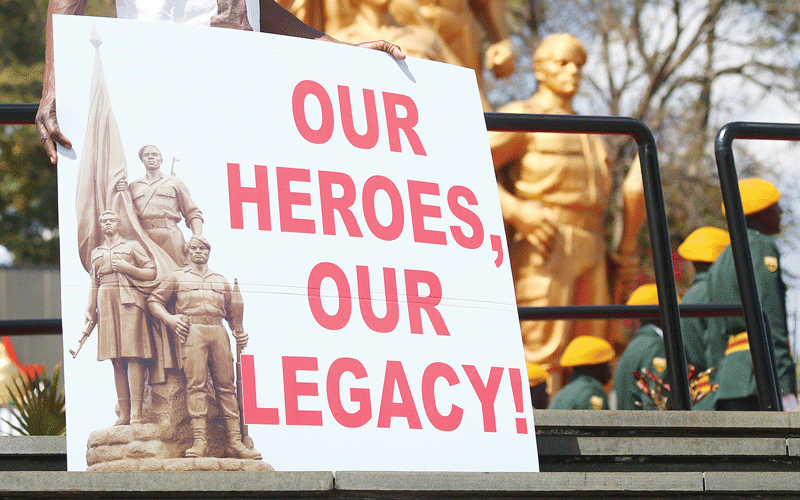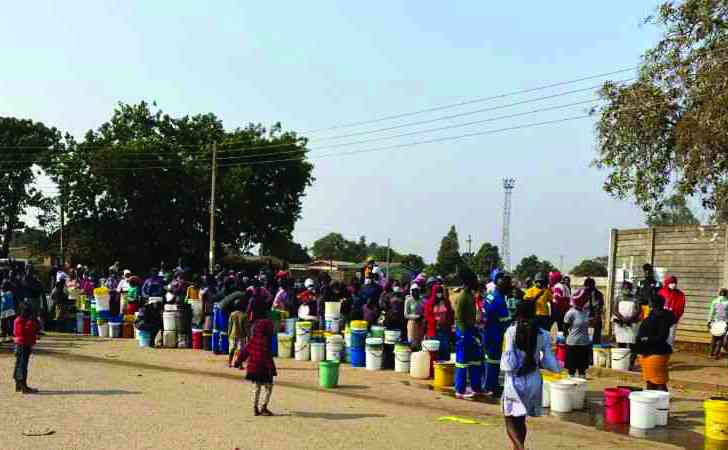
TODAY is a time to reflect as we remember and salute the gallant fighters who helped to deliver independence, and with it, self-determination.
The Heroes Day, which is celebrated every second Monday of August, will be running for the 45th time since independence.
It will run under the theme, Zim@45 Devolve and Develop Together Towards Vision 2030.
The main celebrations will be held at the National Heroes Acre in Harare, where President Emmerson Mnangagwa will preside, while commemorations will concurrently held in the country’s provinces, where the Provincial Affairs and Devolution ministers will read Mnangagwa’s speech.
Heroes Day is a time to pause and remember the freedom fighters who sacrificed for the nation to attain majority rule.
Some paid the ultimate sacrifice in the war for independence, while others were left with permanent scars, a reminder of the brutal journey towards country’s independence.
It is a day that unites all Zimbabweans regardless of political inclination or religious beliefs.
Hundreds of heroes and heroines are buried at the National Heroes Acre and provincial heroes' acres. Thousands are buried in mass graves in Chimoio and Nyadzonya, a brutal reminder of the war of liberation.
- Bryn Mteki back on the music scene
- Pakistan likely to dissolve CPEC Authority
- Bryn Mteki back on the music scene
- Marange shrine: A mating ground for child molesters
Keep Reading
There are some buried in unmarked graves across the country and in Mozambique.
As we salute the gallant fighters, it must never lost on us that the masses also bore the brunt of the liberation struggle.
They were the sea in which freedom fighters swam.
They sacrificed by providing intelligence, cooking for the freedom fighters and singing at night vigils to galvanise the fighters.
As we celebrate today, authorities must look in the mirror and ask themselves if they have done justice to the sacrifices made by the freedom fighters and the masses.
Have they delivered the freedom that the freedom fighters yearned for?
Yes, political independence has been achieved. It is on the economic front where the wheels of independence are moving slowly. The land redistribution exercise has given locals access to the means of production.
However, without title to the land, it becomes a dead asset and risks being seized, amid a new wave of evictions.
The tobacco revolution has delivered United States dollars to pockets of small-scale farmers in a sector that was mainly the preserve of a few white farmers.
The collapse of social services, like the health sector, has left the poor on the brink. Authorities should introspect on whether it needed Cabinet minister Tinoda Machakaire to explode to trigger refurbishment at public hospitals.
The education sector is struggling, with a gulf existing between the haves and have-nots.
The standards have deteriorated except in private schools, which cost an arm and a leg. In public schools, teacher morale is low due to poor working conditions.
Freedom fighters must be turning in their graves at the runaway corruption bedevilling the country, which critics ascribe to absence of political will to fight the vice.
The chasm between the rich and the poor must jolt authorities to act. It is the fuel that has sparked revolutions elsewhere.
Those buried in mass graves did not pay the ultimate sacrifice for a select few to enjoy the fruits of independence.
They wanted a Zimbabwe where there is equal access to the means of production and not one where there are multiple farm owners, while thousands are toiling on the barren land in rural areas.
Their sacrifice should not be in vain.






